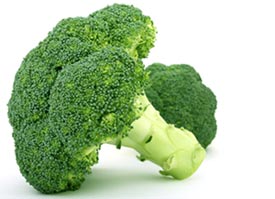Meetings and Events
Spring 2013
Vol. 8, Issue 1
Winter 2013
Vol. 7, Issue 2
Spring 2012
Vol. 7, Issue 1
Spring 2011
Vol. 6, Issue 1
Fall 2011
Vol. 6, Issue 2
Spring 2010
Vol. 5, Issue 1
Fall 2010
Vol. 5, Issue 2
Spring 2009
Vol. 4, Issue 1
Fall 2009
Vol. 4, Issue 2
Spring 2008
Vol. 3, Issue 1
Fall 2008
Vol. 3, Issue 2
Fall 2007
Vol. 2, Issue 2
Winter 2007
Vol. 2, Issue 1
Summer 2006
Vol. 1, Issue 2
Funding Opportunities
Request for Applications on Botanical Supplements Released
The National Cancer Institute (NCI), the National Center for Complementary and Alternative Medicine (NCCIH), and the Office of Dietary Supplements (ODS) have released RFA-OD-09-001, titled “Dietary Supplement Research Centers: Botanicals (P50).” The purpose of this Request for Applications (RFA) is to promote collaborative interdisciplinary study of botanicals, particularly those used in dietary supplements. This initiative is intended to advance the spectrum of botanical research activities, ranging from plant identification and characterization to early phase clinical studies.

The NCI Division of Cancer Prevention is interested in supporting research focused on the mechanisms by which botanically derived bioactive food components might influence cancer risk and tumor behavior. Only investigators who submitted a pre-application in response to PAR-09-091 and received notification are eligible to submit full applications under this RFA.
Botanicals of particular interest include traditional herbal medicines or phytomedicines (e.g., ginkgo, echinacea, valerian), many of which are widely available in the U.S. as dietary supplements. This RFA also supports research on foods of plant origin (e.g., cranberry, broccoli, garlic) which by virtue of biologically active components may provide health benefits beyond basic nutrition; these bioactive constituents are appearing with increasing frequency as ingredients in dietary supplements.
For more information, review the following announcement at http://grants.nih.gov/grants/guide/rfa-files/RFA-OD-09-001.html or contact Dr. Harold Seifried at seifrieh@mail.nih.gov.
Program Announcement for Basic and Preclinical CAM Research Reissued
In October 2008, NCI, NCCIH, and ODS published the Program Announcement (PA) PA-09-010, “Basic and Preclinical Research on Complementary and Alternative Medicine (CAM) (R01).” A reissue of PA-07-007, this announcement’s purpose is to encourage researchers to study CAM with an aim of understanding the mechanisms and the biomedical scientific basics behind CAM clinical practices.
There are four categories into which these practices can be grouped: mind-body medicine, biologically based practices, manipulative and body-based practices, and energy medicine. The focus should be on basic, mechanistic, and preclinical research. NCI is particularly interested in interactions between bioactive dietary components and CAM modalities.
Researchers are encouraged to contact the program directors listed for each participating Institute prior to submitting their applications. The NCI contact for this PA is Cindy Davis, Ph.D., of the Nutritional Science Research Group; contact Dr. Davis at davisci@mail.nih.gov. OCCAM welcomes questions as well; contact Research Development and Support Program Director Dr. Isis Mikhail at mikhaili@mail.nih.gov.
For more information on this PA, visit http://grants.nih.gov/grants/guide/pa-files/PA-09-010.html.
Pancreatic Cancer Prevention Supported Through Program Announcement
Pancreatic cancer affects around 37,000 Americans a year. It is difficult to detect and is considered largely incurable. The American Cancer Society estimates the one-year survival rate is 20% and the five-year rate is 10%.
NCI and the National Institute on Alcohol Abuse and Alcoholism released PA-08-032, “Molecular Approaches to Diet and Pancreatic Cancer Prevention (R01),” which is a re-release of PA-07-257.
The goal of this PA is to encourage researchers who have ideas for “innovative preclinical and clinical studies to determine how dietary energy intake and bioactive food components, including alcohol, influence pancreatic cancer development and prevention."
The agencies releasing the PA hope to promote collaboration among “nutritional scientists, cancer biologists, oncologists and gastroenterologists to jointly examine key mechanisms in the pancreatic cancer process”. Examples of appropriate research ideas include, but are not limited to, the following:
- Nutritional genomic, epigenomic, proteomic, and metabolomic approaches to examining energy metabolism and/or bioactive food component activity in relevant pancreatic cancer models;
- Relationship between diet, genetic polymorphisms (e.g., enzymes that influence energy metabolism) and pancreatic cancer risk.
- Mechanistic studies on the impact of oxidative stress, dietary antioxidants in pancreatic cancer (e.g., apoptosis, IGF-1 signaling);
- Understanding synergistic relationships between bioactive food components in signaling pathways relevant to pancreatic cancer;
- Development of relevant animal models for pancreatic cancer and application of such models to studies on dietary prevention of pancreatic cancer; and
- Understanding the molecular mechanisms by which dietary fat, oxidative stress, acetaldehyde, cytokines, and other factors contribute to the pathogenesis of chronic alcoholic pancreatitis.
For more information on this PA, contact NCI’s Division of Cancer Prevention Program Director Dr. Sharon Ross at rossha@mail.nih.gov and visit http://grants.nih.gov/grants/guide/pa-files/PA-08-032.html.





